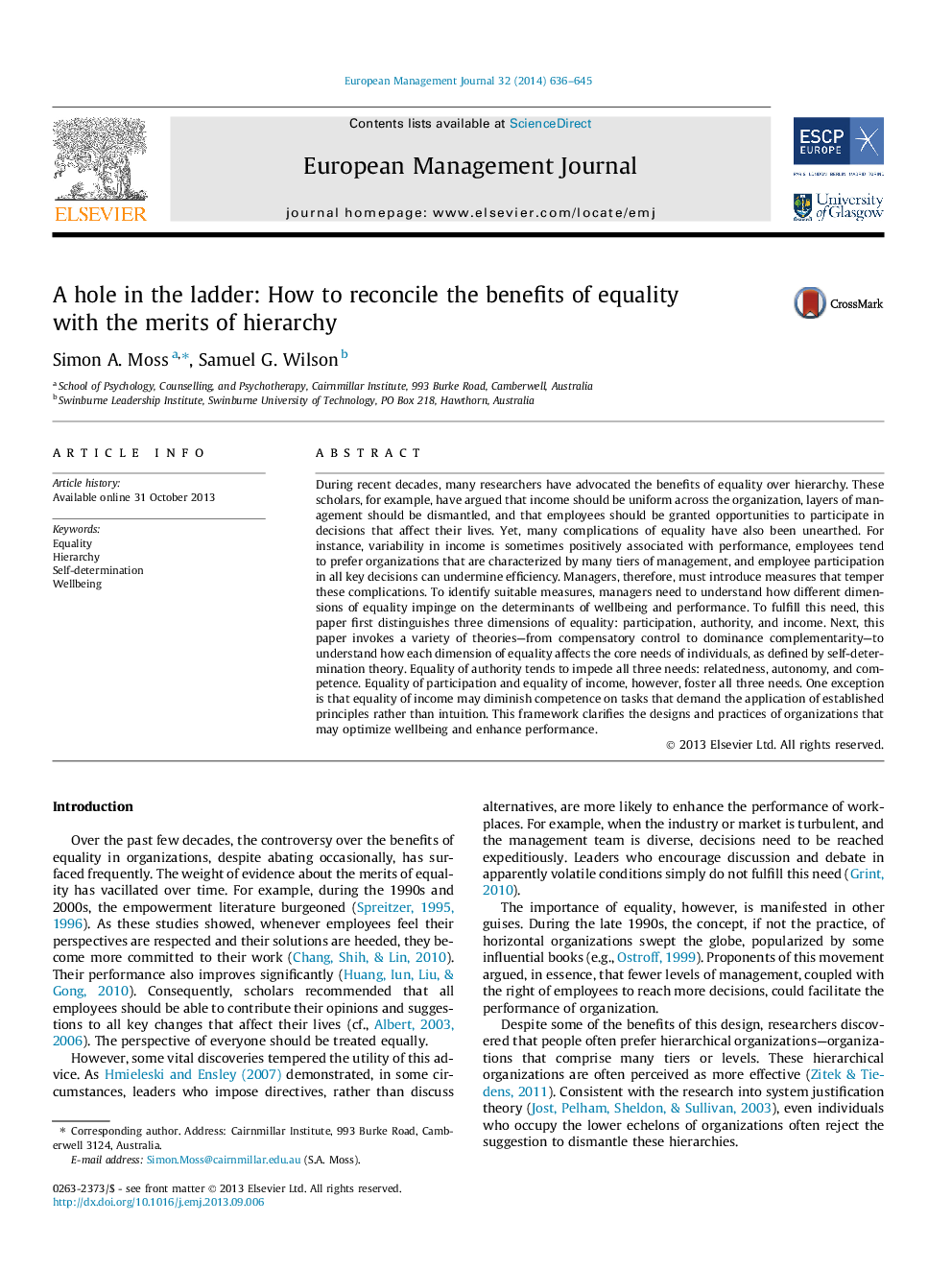| Article ID | Journal | Published Year | Pages | File Type |
|---|---|---|---|---|
| 1014785 | European Management Journal | 2014 | 10 Pages |
During recent decades, many researchers have advocated the benefits of equality over hierarchy. These scholars, for example, have argued that income should be uniform across the organization, layers of management should be dismantled, and that employees should be granted opportunities to participate in decisions that affect their lives. Yet, many complications of equality have also been unearthed. For instance, variability in income is sometimes positively associated with performance, employees tend to prefer organizations that are characterized by many tiers of management, and employee participation in all key decisions can undermine efficiency. Managers, therefore, must introduce measures that temper these complications. To identify suitable measures, managers need to understand how different dimensions of equality impinge on the determinants of wellbeing and performance. To fulfill this need, this paper first distinguishes three dimensions of equality: participation, authority, and income. Next, this paper invokes a variety of theories—from compensatory control to dominance complementarity—to understand how each dimension of equality affects the core needs of individuals, as defined by self-determination theory. Equality of authority tends to impede all three needs: relatedness, autonomy, and competence. Equality of participation and equality of income, however, foster all three needs. One exception is that equality of income may diminish competence on tasks that demand the application of established principles rather than intuition. This framework clarifies the designs and practices of organizations that may optimize wellbeing and enhance performance.
